ChatGPT was viewed 1.76 billion times worldwide last month, which is already 2% of Google!
According to SimilarWeb, it is ahead of other international search engines such as Bing and DuckDuckGo.
Apart from Google, only China’s Baidu and Russia’s Yandex stand in the way.

It’s easier to see if you take Google out of the chart. ChatGPT’s main domain received about 60% of Baidu’s traffic in April.

But ChatGPT’s own breakneck growth is showing signs of slowing a bit.
ChatGPT grew 12.6 percent in April, compared with 55.8 percent in March, 62.5 percent in February, and 131.6 percent in January.
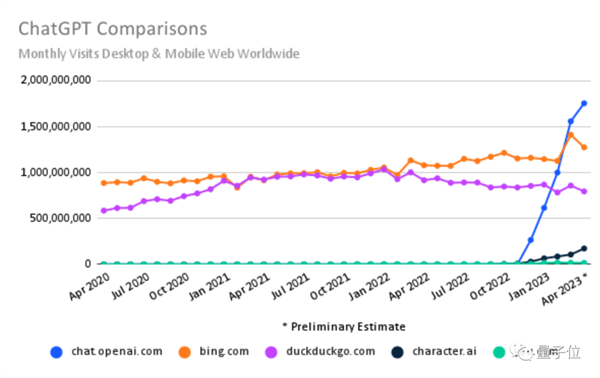
Among other AI chatbot services, Bing saw a sharp decline in visits in April, and Google Transformer, a Character.ai created by the author of the paper, has a small volume, but it is worth paying attention to.
Leverage the search engine market
ChatGPT has been compared to search engines since day one.
“Google is dead,” one person shouted, while another predicted that in the future “Google it” would become “GPT it.”
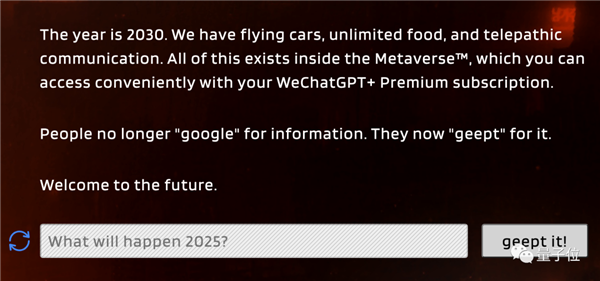
Of course, Google’s position won’t be easily dislodged, but ChatGPT does provide a small AI jolt to the perennial search engine industry.
When Bing announced ChatGPT integration in February, traffic increased 9%, while Google saw a 3.1% decline.
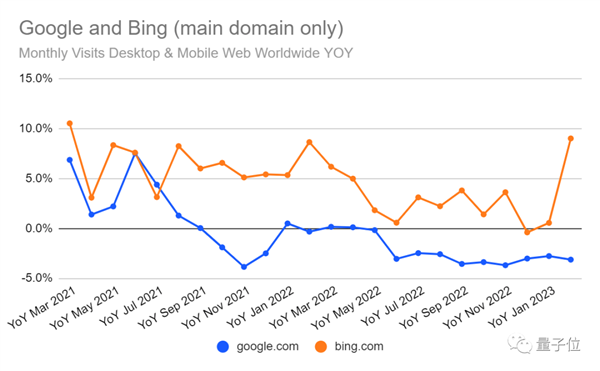
The more significant impact is on mobile. Bing APP downloads jumped eightfold, while Google APP downloads fell 2 per cent, according to data.ai.
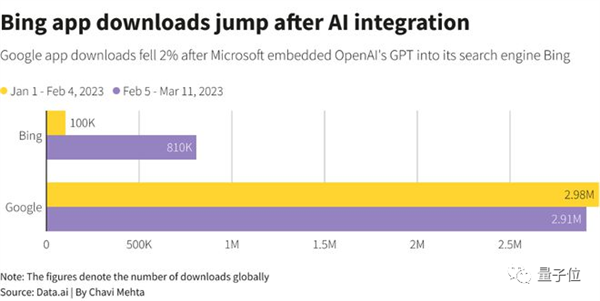
Google has also responded to the impact on its search engine.
According to the Wall Street Journal, Google plans to overhaul search to make it more “intuitive, convenient, personal, and human.” The new project, code-named Magi, will be presented at its annual I/O developer conference on May 11.

ChatGPT itself is more legendary than Bing’s rise.
In addition to the aforementioned visits, the number of registered users reached 1 million in 5 days and 100 million in 2 months, surpassing all previous apps.
While it may appear that ChatGPT’s traffic is slowing down, this is not entirely indicative of the overall decline in ChatGPT’s popularity.
With the promotion of API access by OpenAI and the enrichment of third-party services, this part of visits cannot be counted by this method.
The rapid rise of ChatGPT has not only hit search engines, but also spread to other industries.
Other industry victims have emerged
One of ChatGPT’s productivity features was generating code, and StackOverflow, previously the most popular programming question-and-answer community, began to decline.
In the eyes of many developers, while AI-generated code isn’t guaranteed to be correct, copying someone else’s code from StackOverflow isn’t guaranteed to be exactly what you want, and the subsequent manual tweaking is a dead heat.
It’s enough that ChatGPT eliminates the need to ask questions, wait, and get answers faster.
But some developers are concerned about the sustainability of this model. If people stop talking about the code openly, then ChatGPT won’t have enough training data to master the new technology.

In fact, even before ChatGPT came along, StackOverflow was getting hit by GitHub Copilot, and traffic was starting to slow down.
And ChatGPT’s AI craze has taken GitHub itself to new heights.
The two developer communities, which were originally similar in size, began to see significant differences in visits.
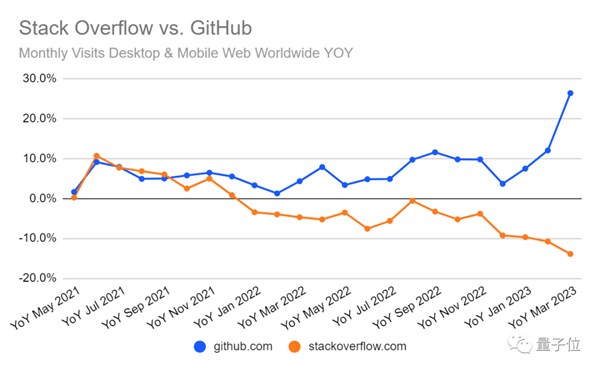
The people searching for answers are not only programmers, but also students.
Chegg, an online education company, cited ChatGPT as the main reason for its performance, sending its shares tumbling 48.41 per cent.

While not a huge drop in traffic alone, purchase conversion rates were down 89% in March from a year earlier.
“We have met our expectations in terms of new registrations, but we have seen a significant increase in student interest in ChatGPT, which we believe is impacting our new customer growth rate,” said the company’s CEO.
Chegg was quick to help itself, partnering with OpenAI to develop its own AI product to help students with homework. But investment bank analysts say it will be 24 years before there is an impact on results.
Next, what other industries do you think will be affected?









